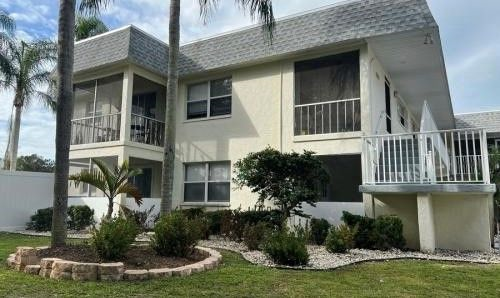High Home Costs Continue to Prevent Renters from Becoming Homeowners
The American dream of homeownership has long symbolized stability and financial progress. However, as we step into 2023, the path to realizing this dream has become increasingly obstructed, particularly for the younger members of Generation Z. Despite reaching the age when previous generations typically ventured into homeownership, these young individuals find themselves facing an intricate web of challenges that their predecessors did not encounter to the same extent.
A Generational Shift with Lingering Hurdles
This generational shift is underscored by a glaring juxtaposition. On one hand, the oldest members of Generation Z are at an age where previous generations eagerly pursued homeownership. On the other hand, the current landscape presents them with unprecedented barriers, including surging home costs, relentless inflation, and accumulating debts. It’s a generational shift defined by not only economic circumstances but also the societal implications of a new reality.
The Harsh Reality of Home Costs
The figures underscore a stark truth that reverberates across the housing market. As of March 2023, the median selling price for a home in the United States reached an astonishing $400,698. In stark contrast, the average annual personal income lags behind at approximately $63,000. This substantial disparity between income and home costs unveils the monumental hurdles faced by potential homeowners as they attempt to navigate today’s challenging market.
Affordability Gap: A Jarring Disconnect
To dissect the gravity of this affordability gap, one can turn to BankRate.com’s housing affordability calculator. Designed to accommodate an annual income of $63,000, the calculator indicates that under optimal conditions, an individual could feasibly afford a home valued up to $204,000. However, this calculation is contingent upon several assumptions: no existing debt, a 30-year fixed home loan secured at the current interest rate of 6%, and a significant down payment of $20,000.
This eye-opening contrast highlights the undeniable chasm between income growth and the soaring costs of homeownership, exemplifying how the real estate market has outpaced the rise in average personal earnings.
A Glimpse into the Future: A Generation Priced Out
The ramifications of these unyielding economic realities are profound and far-reaching. A generation that should be embarking on the journey of homeownership, setting the stage for financial stability and equity-building, finds itself at an unexpected crossroads. The dreams of Generation Z, Millennials, and other younger individuals are being deferred, as the rising costs of homeownership push them towards a different path—continuing to rent properties even as they reach the age when their predecessors embarked on their homeownership journeys.
A Call for Change
In the broader context, the consequences extend beyond individual aspirations. The inability to access affordable housing impacts not only personal dreams but also the macroeconomic landscape. This calls for action—a collective plea to policymakers, real estate professionals, and society as a whole to address the pressing challenges faced by young potential homeowners.
This evolving narrative underscores the urgent need for change. As the cycle perpetuates, the economic implications ripple through multiple generations. It’s an appeal to recognize and address the broader implications of this affordability gap, with the hope of fostering a more equitable and inclusive housing market that empowers individuals to achieve the dream of homeownership, thereby ensuring the potential of generations to come isn’t hamstrung by economic barriers.
Navigating the complexities of the modern housing market underscores the necessity of acknowledging the factors perpetuating the divide between homeownership aspirations and economic reality. Only through a concerted effort to confront these challenges can we lay the foundation for a more inclusive and sustainable future, where the aspiration of owning a home is accessible to all, regardless of their economic circumstances.







